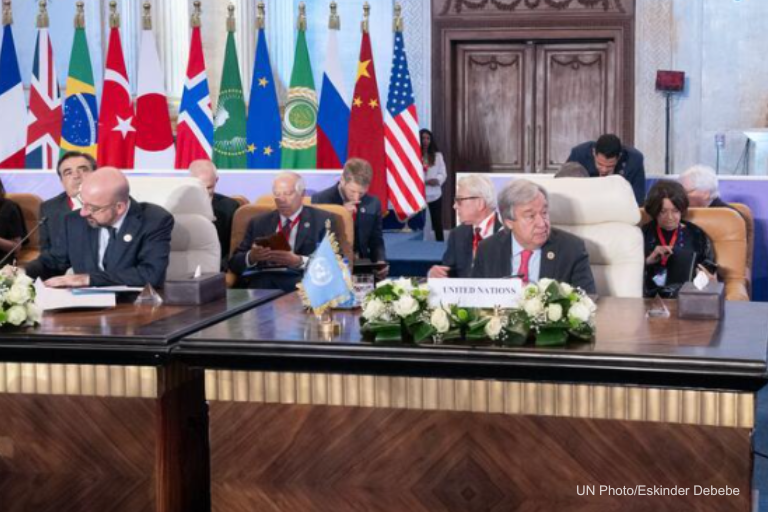The Evolution of International Law in the 21st Century: Challenges and Prospects

Introduction
International law has undergone significant transformation in the 21st century, driven by globalization, technological advancements, and the emergence of new geopolitical dynamics. As the world becomes increasingly interconnected, the legal frameworks governing international relations, trade, human rights, and conflict resolution are continuously evolving. This article explores the major challenges and prospects facing international law in the modern era, examining key developments and their implications for global governance.
The Changing Landscape of International Law
The foundation of international law rests on treaties, customs, and legal principles that govern interactions between sovereign states. However, in the 21st century, non-state actors such as multinational corporations, international organizations, and non-governmental organizations (NGOs) have become influential players. This shift has necessitated a more dynamic approach to international legal frameworks, accommodating diverse stakeholders beyond traditional state-centric models.
Additionally, advancements in technology and the digitalization of commerce have introduced novel legal questions. Issues such as cybersecurity, digital privacy, and the regulation of artificial intelligence (AI) require the adaptation of existing legal norms to address contemporary challenges. As a result, international legal bodies, including the United Nations (UN), the International Court of Justice (ICJ), and the World Trade Organization (WTO), are continuously updating their regulations to keep pace with these developments.
Key Challenges in International Law
- Sovereignty vs. Global GovernanceOne of the fundamental challenges in international law is balancing state sovereignty with global governance. While international treaties and conventions aim to promote cooperation, many states resist external interference in their domestic affairs. This tension is particularly evident in issues such as climate change policies, human rights enforcement, and trade agreements.
- Cybersecurity and Digital RegulationThe rise of cyber warfare and digital espionage has raised concerns about the adequacy of existing international laws in addressing cyber threats. The absence of a comprehensive global cybersecurity framework leaves states vulnerable to cyberattacks, data breaches, and misinformation campaigns. Legal experts are advocating for a more cohesive international approach to cybersecurity regulations to ensure accountability and cooperation among nations.
- Climate Change and Environmental LawClimate change presents a pressing global challenge, necessitating stronger international legal mechanisms to enforce environmental protection. The Paris Agreement, adopted in 2015, marked a significant milestone in international climate law. However, enforcement mechanisms remain weak, as compliance relies on voluntary commitments by states. Strengthening international environmental law through legally binding agreements and robust enforcement measures is crucial for addressing climate change effectively.
- Human Rights Violations and International JusticeDespite the existence of international human rights treaties and courts, human rights violations persist in various regions. The effectiveness of institutions such as the International Criminal Court (ICC) is often hindered by political considerations and lack of cooperation from certain states. Strengthening international accountability mechanisms is essential for ensuring justice for victims of war crimes, genocide, and crimes against humanity.
- Trade Disputes and Economic RegulationsThe globalization of trade has led to complex legal disputes between nations. The WTO plays a crucial role in resolving trade conflicts, yet geopolitical tensions have weakened its authority. Recent trade wars, economic sanctions, and protectionist policies have further complicated the international economic legal landscape. Reforming trade laws to promote fair competition and dispute resolution remains a key challenge.
Prospects for the Future of International Law
- Strengthening Multilateral CooperationThe future of international law hinges on enhanced multilateralism, where states collaborate to address global challenges collectively. Strengthening institutions like the UN, ICC, and WTO can foster more effective dispute resolution and policy implementation. Encouraging diplomatic dialogue and legal harmonization will be crucial in achieving sustainable global governance.
- Developing Comprehensive Cyber LawsEstablishing international cyber laws that define digital sovereignty, cybercrime, and data protection is vital. A global cybersecurity treaty could help mitigate cyber threats by setting clear legal standards and promoting international cooperation in cyber defense and digital rights protection.
- Advancing Climate LegislationFuture environmental laws must incorporate stricter enforcement mechanisms, holding states and corporations accountable for ecological damage. International courts may need to expand their jurisdiction to address environmental crimes, ensuring legal consequences for violators.
- Enhancing Human Rights ProtectionStrengthening the enforcement of human rights laws through universal jurisdiction and improved investigative mechanisms can deter violations. Expanding the mandate of international tribunals and promoting cooperation among states will be essential in achieving justice for victims of human rights abuses.
- Reforming International Trade LawsModernizing trade laws to reflect contemporary economic realities, including digital trade and supply chain regulations, can facilitate smoother global commerce. The WTO and other economic institutions should adopt more flexible and inclusive policies that accommodate emerging economies and technological advancements.
Conclusion
International law in the 21st century faces significant challenges, yet it also presents opportunities for progress. As the world grapples with geopolitical conflicts, technological disruptions, and environmental crises, a robust and adaptable international legal framework is crucial for maintaining global stability. Strengthening cooperation, modernizing legal standards, and ensuring effective enforcement mechanisms will shape the future of international law, fostering a more just and sustainable global order.


